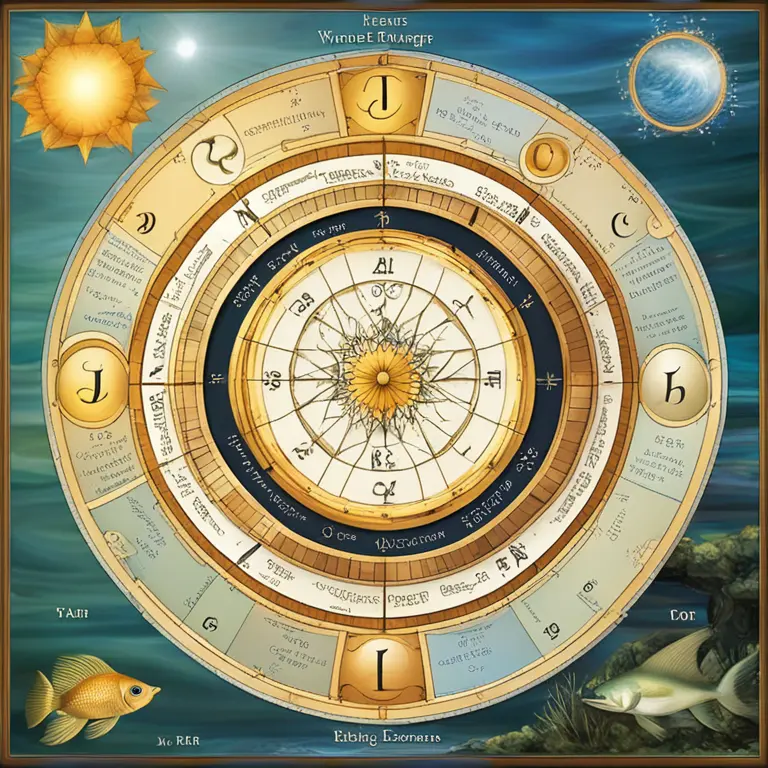
Birth Chart Insights: Ideal Living Locations
Discover how your birth chart can guide you to the best places for you to live, thrive, and find harmony—astrologically tailored to you.
article by Priya Deshmukh
Your Birth Chart as a Living Guide
Astrology offers a multitude of ways to navigate life's choices, and deciding where to live can be guided by the stars. Your birth chart, a snapshot of celestial bodies at your time of birth, holds clues to your ideal living environment. Here we will delve into how planetary positions can influence your connection to different places, offering insights for a harmonious domicile that aligns with your astrological makeup. This cosmic blueprint is not just about personality but also about the physical spaces where we feel most at home.

Planetary Influences on Locale
Each planet in your birth chart governs different aspects of life, including ideal living conditions. For instance, the Moon governs your emotional needs and comforts. A strong Moon connection might suggest a need for a nurturing, tranquil location. On the other hand, Jupiter's placement can indicate where opportunities for expansion and prosperity may be most abundant. Understanding these planetary influences is key in pinpointing locations that will support your personal growth and fulfillment.

Elements and Living Environments
The four elements—fire, earth, air, and water—represented in your natal chart, impart crucial information about the setting you'd thrive in. Fire signs may prefer vibrant cities with abundant energy and inspiration. Earth signs might seek stability and might resonate with rural or suburban areas that provide a sense of grounding. Air signs could enjoy dynamic, socially rich environments, while water signs might be drawn to places near bodies of water or with a profound spiritual essence.

Locational Astrology Practice
Astrocartography, a branch of astrology that maps an individual's birth chart onto the globe, helps in identifying geographically favorable areas. By laying planetary lines over the Earth's map, you can decipher places that amplify certain life aspects, from career success to personal relationships. A person with a Venus line running through a city could find love and harmony there, whereas a Mars line might indicate challenges or the need for asserting oneself.
Relocations and Astrological Timing
Timing is a crucial factor in astrology. Transits and progressions to your natal chart can indicate favorable periods for relocation. If Saturn is transiting favorably, it may signal an opportune time to move to a location that allows for greater responsibility or career advancement. On the flip side, the erratic energy of a Uranus transit could inspire a sudden move or draw you towards a less conventional living arrangement.
Cultural and Climatic Considerations
Beyond individual planetary placements, consider cultural and climatic elements that align with your birth chart. Air and fire dominant charts may enjoy a warmer, sunnier climate, contributing to their energetic flow, while earth and water dominated charts might prefer cooler climates that provide a sense of introspection and calm. Cultural compatibility—languages you're inclined to learn, societal structures you find agreeable—can also be understood through planetary positions.
Personal Application: Consultation and Reflection
While astrological guidance provides a broad view of potentially suitable living areas, individual intuition and preferences remain paramount. Combine astrological strategies with personal desires and practicalities, such as employment opportunities and family ties. Consult with a professional astrologer to interpret your birth chart in depth with a focus on locational astrology, and reflect on your past experiences in different places for a comprehensive decision-making process.
Published: 1/22/2024
Modified: 1/22/2024
More predictions
Come back here soon to learn more about yourself and your future


Moon Phases and Astrological Practice
Delve into the mysterious influence of the moon's phases on astrological practice and how they may affect your life and decisions.


Moon Phases & Astrological Affect
Discover how the moon's phases and location impact astrology, affecting personal moods, behaviors, and life events.


The Lunar Cycle & Its Impact on Life
Discover how moon phases impact daily life, personal growth, and more in our guide to the lunar cycle's significance.